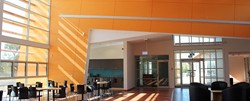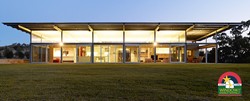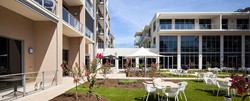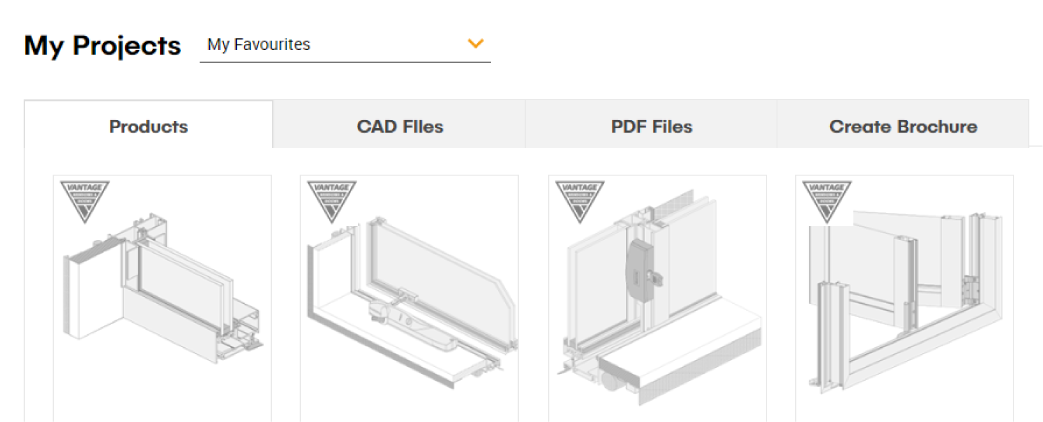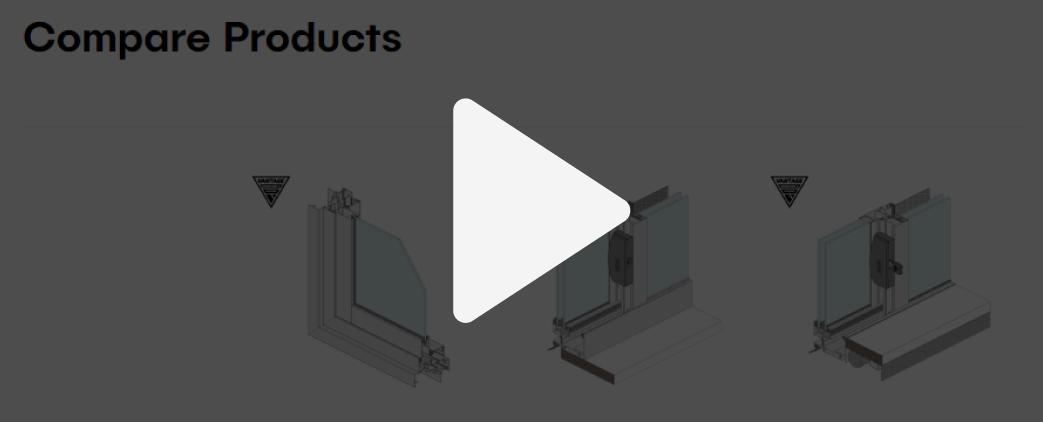What defines a successful project, practice & career? A topic that resonated with a room full of fresh graduates and professionals, who had ventured out on a dreary Tuesday night (07/07/15) to gain some wisdom from our esteemed panel of speakers. Moderated by David Neustein of Other Architects: Kerry Clare (Clare Design), Timothy Moore (Sibling), Cristina Goberna (FAKE Industries Architectural Agonism) & Tim Horton (NSW Architects Registration Board) all tackled the discussion with a sense of certainty and conviction that in itself was inspiring to watch.
Separating the discussion into three sections (project/practice/career), Kerry Clare began with a statement, which perhaps could answer all three sections in one. When asked, what factor aides the development of a successful project she proclaimed “aspiring for something extra” in regards to what the brief is asking of you. Kerry reiterates, briefs are often very specific when it comes to the programmatic requires of architecture, a successful project stems from the architects ability to develop a solution that includes what the client requires while adding something extra which consolidates the design, ultimately contributing to the long term success of your built form. Not to undersell her approach to design, it became evident that it wasn’t so easy to reveal what this something extra is in each project, but having this mentality as a driver when constructing a resolved project seems to have proven quite an effective strategy for Kerry over the course of her career.
Approaching the question from a similar angle, speaker Tim Horton, vouched for engagement as a core driver in the development of a successful architectural project, practice & career;
“if you’re not engaged, you’ll be tipped off the production line”.
Upon returning to the question of what contributes to a successful career Horton quoted Steve Johnson, implying “chance favours the connected mind”. Horton goes onto emphasize that having too much of a prescribed plan can sometimes hinder the sporadic opportunities that naturally present themselves throughout the course of a project, practice and career. He emphasized that one shouldn’t plan for success, that success is a byproduct of engagement and dedication to your craft and that success is never guaranteed, thus should not be a major driver for aspiring architects.
Cristina Goberna, approached the question in a similar vein, reiterating that success is subjective and rather than focusing on how you can achieve it, focus on how you can use architecture as a mechanism for social activism and discussion. Therefore, architecture that incites discussion, change and an evolution of thought & process is seen as a more accurate measure of success in ones project, career or practice. Cristina goes onto to encourage the audience to develop projects that incite discussion, take risks and reject preconceptions of design, as that is the most visceral way aspiring architects can define a career for themselves that is fulfilling and ‘successful’.
Timothy Moore, often ended each segment of discussion by articulately drawing together the arguments that preceded him while offering his own unique approach on what embodies success in architecture. Moore reiterated that there are many misconceptions when it comes to what constitutes success; implying that architecture that aspires to advocate change, whether in the social realm or in design, is a good approach when aspiring for a successful career. Moore further iterated a point that was collectively shared by the panel, albeit argued from different perspectives; that a successful career in architecture stems from the ongoing desire to not become complacent with how one designs. To create paradigms within the office, architecture and public realm, which constantly strive to question political and social barriers in an intelligent and conscious manner. Ultimately highlighting that success within architecture cannot be measured, but rather, it is defined by the aspiration for collective growth and knowledge.
Ultimately, the most valuable thing to be taken from the talk was that success is subjective. Defining success in ones future career depends on array of different factors that rely on personal experience, engagement and hard work. All of these architects may have had differing opinions on what specifically contributes to a successful project, practice or career; but the one thing they all shared is a passion for architecture. This being the prime point I took away from the evening; true success lies in ones desire to be better, to contribute selflessly and to aim to present the best possible version of yourself to the world. Whether that is via architecture, your firm or inevitably, the history of your career, success is defined not by the desire for acclaim but rather the desire to create an answer to a question that is a succinct, intelligent and as well executed as you can possibly achieve. Sure, you can do all of this and not attain the kind of success our panel has achieved, and is on the path to achieving in the future, but that shouldn’t be the driver for what young architects should aspire to. Accolades wear off, but good architecture lasts.
Written by: Ben Cohen of Studio GL (New South Wales Event Correspondent for AWS)
Ben is a Sydney based Graduate Architect, who graduated from Sydney University with a Masters in Architecture. He recently begun work at Studio GL where he has been developing his interest in urban design; his role has involved developing graphic information, design and research for civic master planning and development of design principles for a range of projects relating to master planning and urban design.





